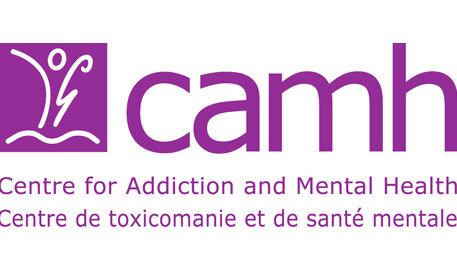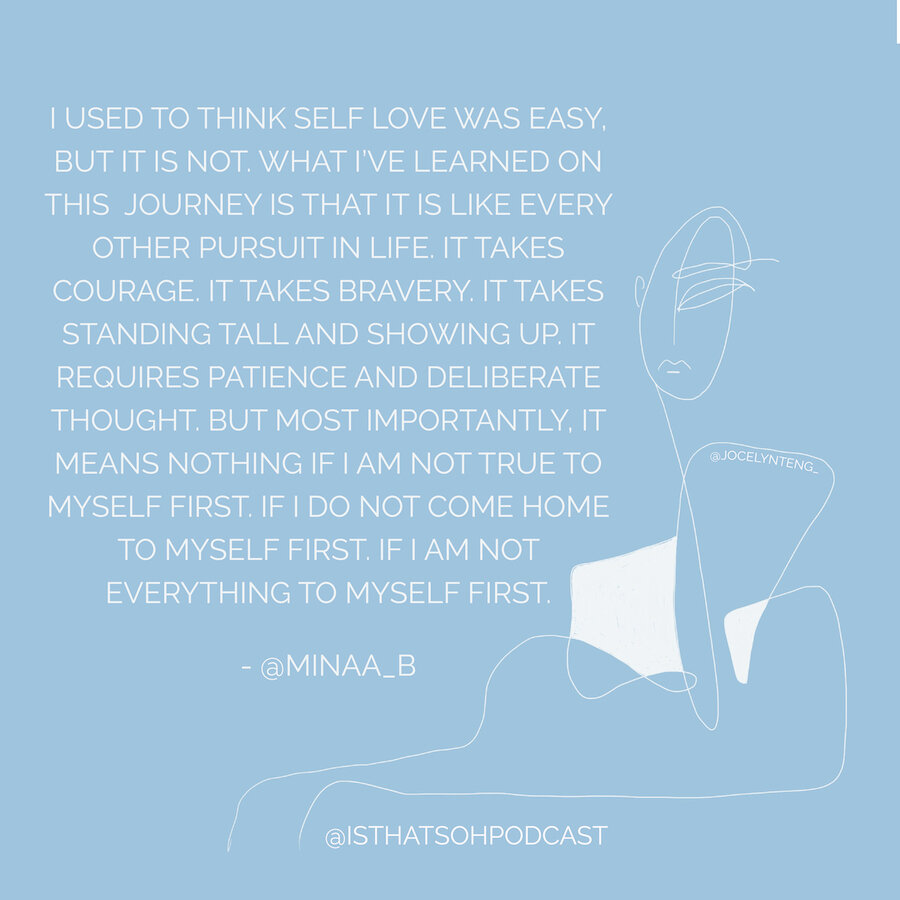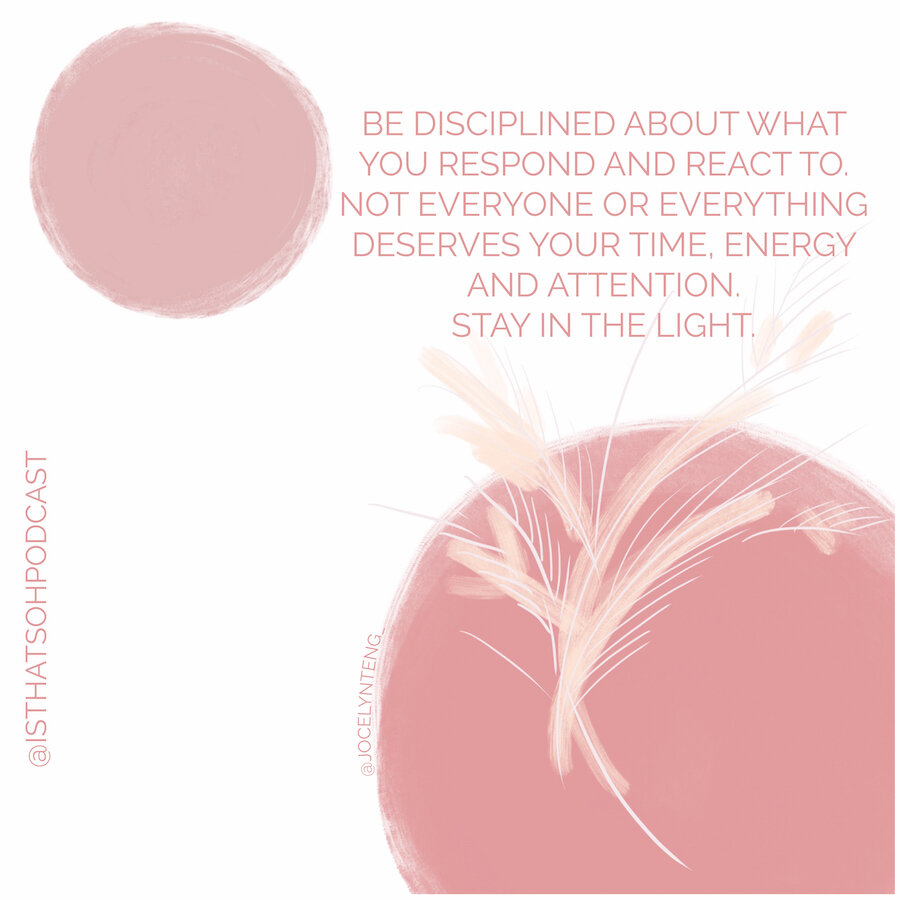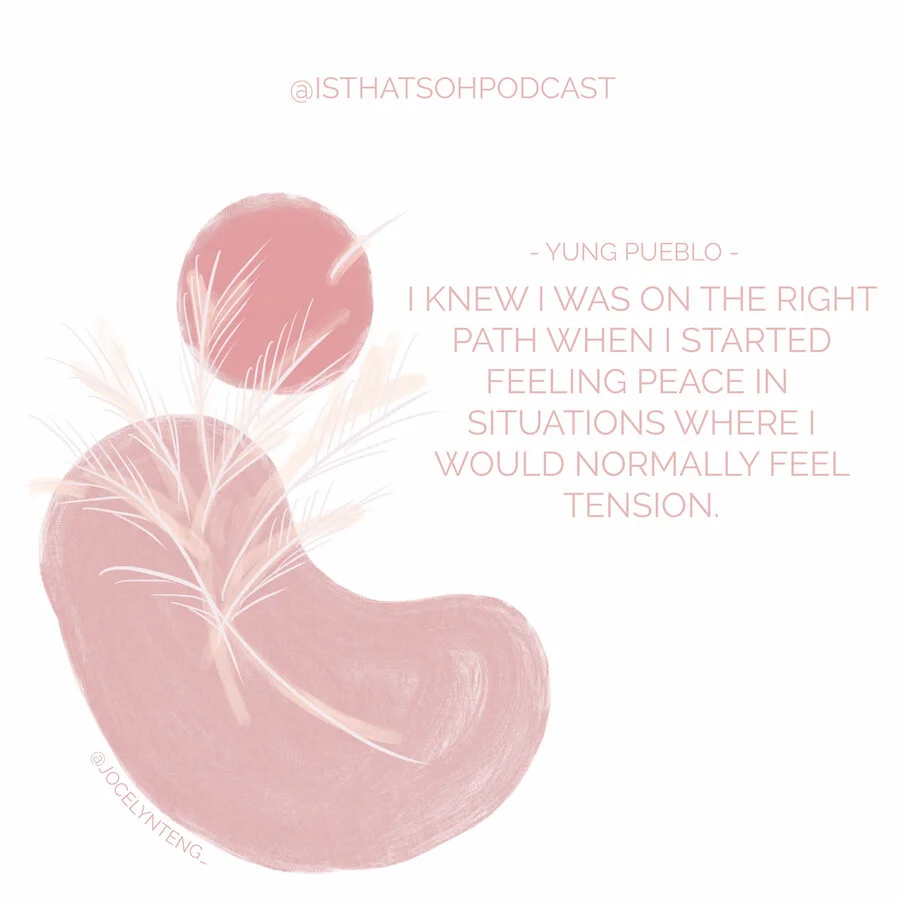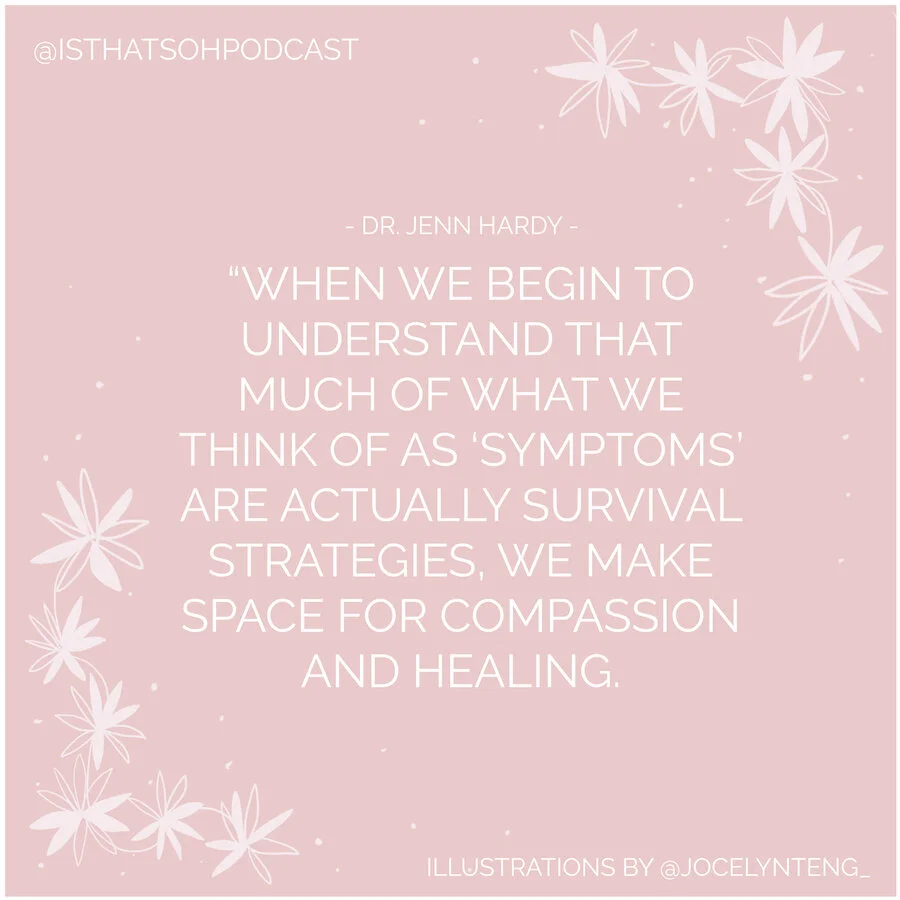EPISODE 6: THE DIFFERENCE BETWEEN MENTAL HEALTH AND MENTAL ILLNESS
- A MENTAL HEALTH 101 -
Hello and welcome back to the Is That Soh Podcast!
So today on the podcast I wanted to talk about the difference between mental health and mental illness as well as do a little mental health 101 download.
I think most of you will agree with me when I say that in recent years, mental health has become less of a taboo topic of conversation and although I am personally extremely happy about this, there is still so much information that needs to be discussed to fully understand this topic. Most people have a general understanding of what mental health but a lot of the time they are also unclear of what is fact versus fiction
I for one am constantly trying to learn more about mental health so that I can be a better advocate and educator on the topic, and one of the ways that I think we can all start to better understand it is to breakdown the differences between mental health and mental illness. Okay?!
Let’s get started!
Photo by Thought Catalog on Unsplash
DIFFERENCE BETWEEN MENTAL HEALTH AND MENTAL ILLNESS
Mental health is the health of your mind. Everyone has to look after their mental health just as they do their physical health.
“There is no health without mental health.” - World Health Organization
So, what does this mean? Well, it means that during the course of everyone’s lifetime, everybody will struggle or face challenges pertaining to their mental well-being but not everyone will experience a mental illness.
When we talk about mental health we are talking about emotions, one’s ability to problem-solve, to cultivate social connections, and to understanding life and the world around them. Just like our physical well being, our mental well being will be impacted in various degrees if we do not take care of ourselves by getting proper sleep, eating a balanced diet, or dealing with stress properly for example.
The length of time associated with poor mental health also varies. It can last for a short time or a long time depending on how quickly one can address, fix, or find ways to cope with the problem at hand.
Some people with mental health issues find that their experiences actually help them to become more compassionate and empathetic towards others while also make them more artistically inclined, grateful for what they have, and better able to understand and help others around them.
Mental illness, on the other hand, is exactly that, an illness. Although generally, the term is used to describe a variety of experiences that affect the way people think, feel, behave, interact with others, and their ability to live their life. The varieties of mental illness and the degrees to which people are affected by them are also quite broad.
TYPES OF MENTAL ILLNESS
Mood disorders like depression which affects the way you feel about yourself, others, and the world around you, and bipolar disorder which affect your mood and the way you process emotions.
Anxiety disorders which cause you to experience unexpected anxiety or to become fearful of situations or events that most people consider normal. Anxiety disorders are actually the most common type of mental illness and include panic disorder and post-traumatic stress disorders.
Psychotic disorders like Schizophrenia affect your ability to sense what’s real and what isn’t and thus make it difficult for those suffering from this type of mental illness to think, speak and interact in an organized way.
Eating disorders like anorexia, bulimia, and binge eating all involve a distorted body image which has an adverse effect on how you manage food and weight. These disorders are much more than about food though, they also have a lot to do with how one feels about themselves and how they are able to cope with their feelings. In Canada, about 90% of people diagnosed with anorexia and bulimia are women however stats around binge-eating disorder affects men and women more equally.
Personality disorders like a borderline personality disorder, OCD, or OCPD - affect the way you feel, act, and form relationships with others. They can also cause people to be more impulsive, inflexible come off as brash, or even pushy.
People who experience hoarding and the inability to throw away items from their homes are often categorized as having a personality disorder.
People living with BPD feel like there's something fundamentally wrong with them—and often experience extreme changes in their moods, have a hard time controlling impulses, and experience extreme peaks and valleys of both highs and lows. They also may have a hard time trusting others and yet may also become very scared of being abandoned or alone. Further, symptoms of BPD often fall into 5 groups - unstable behavior, unstable emotions, unstable relationships, unstable sense of identity, and awareness problems. According to American Psychiatric Association about 1% to 2% of the general population has BPD but according to the American Psychiatric Association statistics - most people with BPD actually find that their symptoms become more manageable as they get older, and some according to the Canadian Medical Association Journal, can even recover.
Substance abuse disorders or more commonly know as addiction start to form when someone becomes dependent on a substance such as alcohol, tobacco, or hard drugs.
Dementia - the loss of memory, judgment, and reasoning, along with changes in mood, behavior, and one’s ability to communicate is also considered a mental illness. Dementia happens when someone experiences a severe loss or deterioration of brain cells and other illnesses like Alzheimer’s disease also fall into this category.
Learning disabilities like Attention-deficit/hyperactivity disorder (ADHD) can also be considered a mental illness as it affects your ability to focus your attention due to hyperactivity, which is when you become easily over-excited.
1 in 5 people currently suffer from a mental illness
Photo by Devin Avery on Unsplash
COMMONLY IMPACTED GROUPS
Youths - During a time in their life where they are experiencing a lot of changes both physically and socially, many youths go undiagnosed because their parents, teachers, guidance councilors or whoever, categorize their behavior as ‘just a phase’ instead of recognizing that there could be a real serious problem at hand. Because of this, a lot of them do not get the help or treatment they need to properly deal with their illness.
Refugees - mostly as a result of the stressful events that forced them to flee their homeland and the difficulties involved in moving to a new country. Many refugees experience higher rates of mental illness such as depression and PTSD
People with disabilities or chronic illnesses are also at a higher risk of experiences anxiety and depression because of the chronic pain, and stress that comes with challenges they face on a daily basis living with a chronic. 1/3 people with chronic illnesses tend to also experience depression.
People of Aboriginal descent - Reasons for this trend are believe to be complex and connected partially to their history and environment. May aboriginal people experience higher rates of depression, suicide, post-traumatic stress disorder, and substance use problems.
Women are more likely than men to experience a mental illness however this can be due to the fact that women are often more likely to seek help. Men, on the other hand, more commonly experience problems with substance use.
The Elderly are also at an increased risk of mental illnesses like depression and anxiety disorders because they tend to face serious health problems and are at a point in their lives where they are loosing loved on. Further, your chances of developing an illness like Alzheimer’s or dementia increases as you age.
“In 2009, about 3% of Canadians aged 12-19 said they experience a mood disorder and about 4% said that they experience an anxiety disorder.” - Here To Help
DIFFERENT TYPES OF TREATMENT
Most people use a combination of treatments to help them deal with a mental illness like:
medication
counseling
support groupS
light therapy
regular exercise
self-help practices.
Recently I also learned while listens to an episode of Goop’s podcast that Ketamine is also being used now to treat depression which was very interesting.
SIGNS OF A MENTAL ILLNESS
Identifying whether you or someone you know is suffering from a mental illness can be tricky because symptoms can look different from person to person and range in severity. Your best bet in identifying whether you or someone you know has a mental illness is by paying attention to a change in the way you or they think, act, and feel .
For example, if you:
no longer find interest in activities you once enjoyed
inability to complete daily tasks
find yourself getting angry or sad for little or no reason
experience mood swings
feel numb like nothing matters
have strange thoughts or voices that you can’t seem to get rid of
feel sick constantly or have little to no energy
have feelings of helplessness and despair
experience changes in eating and sleeping habits
start to form explainable fears about things in your life that are otherwise easy for others to cope with
decrease attendance at work or school
substance abuse
start self isolating
start to have suicidal thoughts
lash out at friends and family members
ADDITIONAL RESOURCES
All in all, people who live with mental illnesses are not bad people. A lot of people with mental illnesses feel like they have to constantly apologize or hide their existence but feeling shame for having a mental illness helps no one.
Before you go I also just wanted to reiterate that people living with mental illnesses can and do go on to live full lives often accomplishing great things. There are so many celebrities who have opened up about their mental illnesses include Kendall Jenner, Adele, Miley Cyrus, Selena Gomez, Lena Dunham, Dakota Johnson, Demi Lavoto, Emma Stone, Ellen DeGenerous, Dwayne Johnson, Lili Reinhart, Lady Gaga, Justin Bieber, JK Rowling and Kristen Bell, just to name a few. Those who seek treatment for a mental illness by talking to a therapist, I believe, actually become better communicators and are able to recognize and describe what emotion or feeling they are battling with. This, I believe, leads them to become great song writers, artist, authors, and even athlete. Living with a mental illness is not the end of the world even though it may seem like it. With the right help and treatment, many of us living with mental illness can live a productive and happy life.
All right, well I hope you walked away from today with some fresh insights and I just wanted to let you know that you can still sign up for my mental health challenge if you haven’t already!
If you have any comments about this episode please feel free to leave them in the comment section here!
Alright! I wish everyone a great week and I’ll see you again next Monday!
CIAO!











